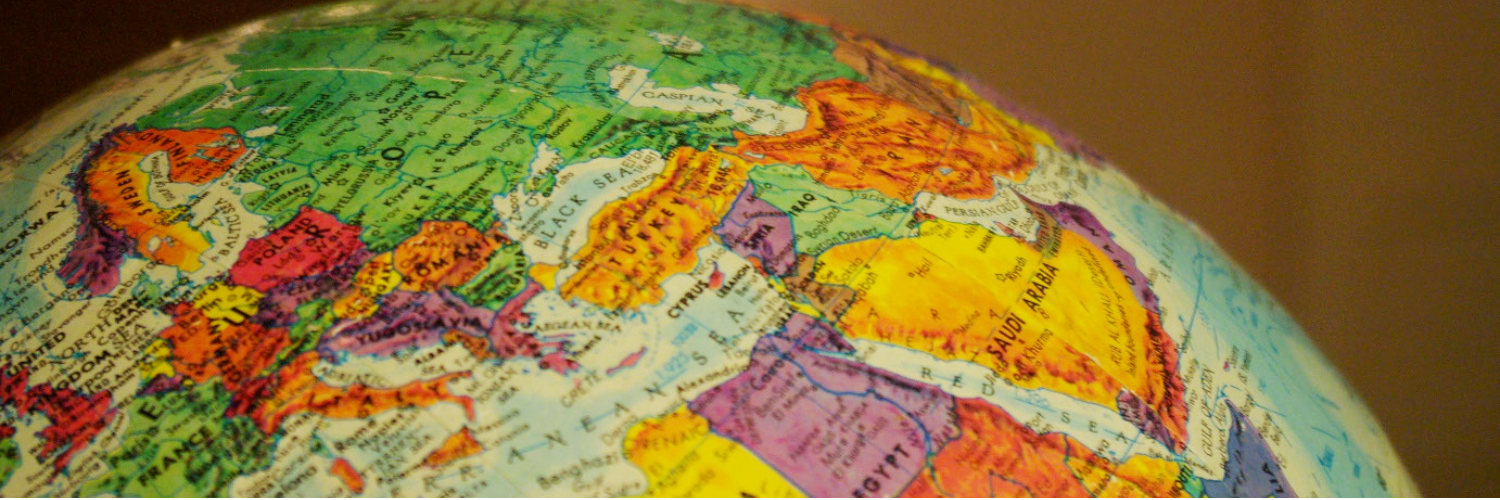Required Texts:
- S. Applebaum, ed. Great German Poems of the Romantic Era, Dover (dual-language anthology)
- S. Applebaum, ed. Introduction to French Poetry, Dover (dual-language anthology)
- Declaration of the Rights of Man and Citizen, 1789
- S. Freud, The Uncanny
- J. W. v. Goethe, Faust, Part I and sel. from Part II, trans. W. Arndt, Norton
- J. W. v. Goethe, The Sufferings of Young Werther, ed. Corngold, Norton
- E. T. A. Hoffmann, The Sandman
- V. Hugo, Preface to Cromwell
- H. v. Kleist, The Earthquake in Chile
- J.-J. Rousseau, Confessions
- M. W. Shelley, Frankenstein, Norton 2nd edition
- Olympe de Gouges, Rights of Woman and Citizen, 1790
- Declaration of Independence, 1776
Description:
What were French and German authors writing about before and after Shelley composed Frankenstein? The European Romantic Movement aims to foster understanding of the term “Romantic,” especially as it relates to the fiction, prose, poetry, and drama in Britain, France, Germany, and abroad ca. 1780 to 1830. We will read harbingers of the European Romanticism (Rousseau’s Confessions, and Goethe’s Sufferings of Young Werther); key texts of the period (Goethe’s Faust, Shelley’s Frankenstein, and Hoffmann’s Sandman); poetry by Droste-Hülshoff, Novalis and Heine; and overlooked writers and artists who influenced major issues of the day like the French Revolution, colonialism, and women’s rights. The class will discuss themes common to Romantic-era writing, such as nature, utopia, freedom, the grotesque, and the uncanny across several fictional genres (poetry, drama, prose, memoir, and novellas). Students will leave the course with an appreciation for the ways in which literary movements transcend national and generic borders.
Assignments:
Comparative Paper: Write a 10-page essay on any two texts we have read so far. Choose from one of the following general topics & work on specifying them: ‘Liberty: Which of the authors we have read so far embodies some of the freedoms you think are most important espoused in the Declarations (American, French, &/or Gouges) or Rousseau’s Second Discourse? Consider the ways in which an author depicts freedom of speech & religion; equality among all races & between men & women; &/or the right to one’s own body, healthcare, life, protection, knowledge, privacy, &/or a fair trial by closing analyzing the text for tone, symbolism, word choice, etc.. Your paper proposal should begin to specify which of these values you want to focus on & brainstorm about what they mean to you, & what kinds of specific questions you can generate about them vis-a-vis Romantic-era literature. Your final paper should argue which text (the Declaration-type or the literary one) is a more effective medium for teaching readers the values you associate with the term liberty.’ ‘Nature: What do literary depictions of nature teach readers? Consider the list of freedoms & rights listed above; gender roles; &/or religion/death. Your paper proposal should brainstorm about any one of these subtopics (what they mean to you, what specific questions you can generate about them vis-a-vis the theme of nature, etc.). The final paper should argue which of the two texts is a better vehicle for teaching readers to act like better people/children of nature (or: insert your own focus here) by closely analyzing the authors’ use of tone, symbolism, word choice, etc.’
Final Exam: Trace the presence of the uncanny, Romantic irony, the sublime, and human rights in Frankenstein and argue which of the French, German texts we have read this semester seems to resonate most with the themes and issues of the novel.
Course Schedule
Day 1: What is Romanticism?
- V. Hugo, Preface to Cromwell
Unit I: Romantic Movements in France and Germany
Day 2: The French Revolution
- Declaration of Independence (1776); Declaration of the Rights of Man and Citizen (1789); Gouges, Rights of Woman and Citizen (1791)
Days 3–7: Rousseau’s Confessions
Day 8: Romanic Irony
- Chénier, “When the somber slaughterhouse . . .” ; Lamartine “The Village Bell” ; Droste-Hülshoff, “In the Moss” ; and Goethe, “Little Rose on the Heath”
Day 9: Myth, Nature, and Religion
- Nerval, “Delfica” ; Goethe, “Elf King” ; Hölderlin, “Hyperion’s Song of Destiny,” “When I was a boy,” “Halfway through Life” ; Novalis, “Must the morning . . . ” and “I am journeying over”
Day 10: Dead/Deadly Women
- Hugo’s poetry; Musset, “On a Dead Woman” ; Goethe, “The Fisherman” ; Heine: “I don’t know . . .” and “Morphine”
Days 11–13: Romantic Irony
- Goethe, Sufferings of Young Werther
Day 14: Comparative Essay Due
Unit II: Frankenstein and his Doppelgänger
Day 15: The Sandman
- E.T.A. Hoffmann, The Sandman
Day 16: The Uncanny
- S. Freud, The Uncanny
Days 17–24: Faust
- Goethe, Faust I and II
Days 25–28: Frankenstein
- Shelley, Frankenstein
Final Exam

